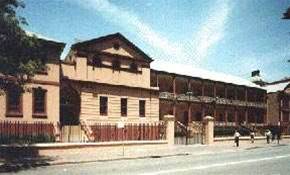Veteran NSW Government chief information officer Dr Vladas Leonas has called for a “practical approach” to technology projects in the face of a rapidly evolving public sector.

Dr Leonas joined the NSW Department of Public Works as CIO in 2001 and later served as CIO of the state’s Department of Housing and Transport Construction Authority.
In June this year, he was appointed deputy group CIO of Transport for NSW, a super-agency created by the O’Farrell Government last November.
“In the last several years, we’ve gone from 122 agencies to nine super-departments,” Dr Leonas told the Customer Voice Leadership Forum in Sydney this week.
“Creation of these new entities brought new challenges,” he said.
He noted that the 30,000-seat Transport for NSW brought together eight large agencies and was “the size of a bank, almost the size of Telstra”.
“How do we ensure end-to-end delivery … that nothing is falling through the cracks? How do we ensure that there is a single source of truth?
“All of these things require significant rethinking and business process reengineering. It’s still early days … but there are very positive trends in this space and I expect we’ll see some significant developments in the next three to five years.”
In addition to integration challenges, Dr Leonas said government organisations shared private sector challenges in moving from “paper-based citizen engagement” to more modern, multi-channel interactions.
He highlighted Transport for NSW’s pilot ‘TXT BUS’ service, introduced in March last year to allow commuters to request bus arrival information via SMS.
Transport for NSW offered iPhone and Android applications, a Facebook page, and Twitter accounts to provide status updates about the state’s trains, ferries and buses.
The super-department also this year won close to $175 million from the State Budget for ICT projects including smartcard ticketing and train safety systems.
Dr Leonas said a “critical success factor” in State Government programs was “being very practical in the approach and not trying to build something that will survive forever because the change is happening quite fast”.
“The 2002 Department of Public Works and Services today is called the Department of Finance and Services,” he noted.
“In ten years, the department has changed its name and composition four times [and gone through] probably at least six director-generals.
“The pace of change in Government has actually caught up, if not exceeded the commercial end of town,” he said.


.png&h=140&w=231&c=1&s=0)
_(20).jpg&h=140&w=231&c=1&s=0)
_(23).jpg&h=140&w=231&c=1&s=0)






 iTnews Executive Retreat - Security Leaders Edition
iTnews Executive Retreat - Security Leaders Edition
 iTnews Cloud Covered Breakfast Summit
iTnews Cloud Covered Breakfast Summit
 Melbourne Cloud & Datacenter Convention 2026
Melbourne Cloud & Datacenter Convention 2026
 The 2026 iAwards
The 2026 iAwards












_(1).jpg&h=140&w=231&c=1&s=0)



